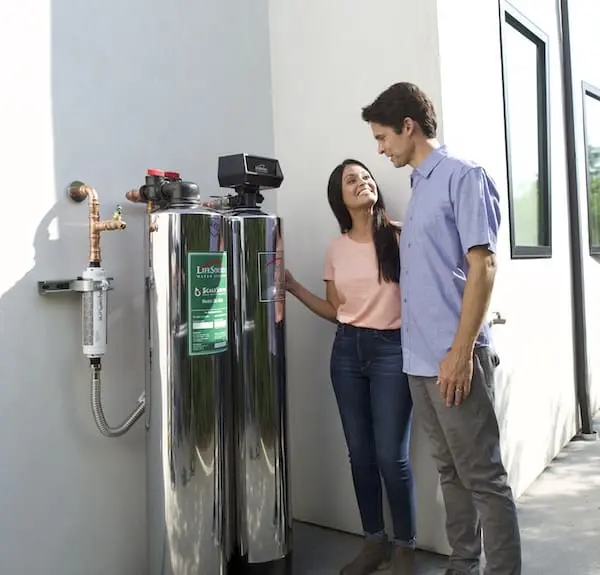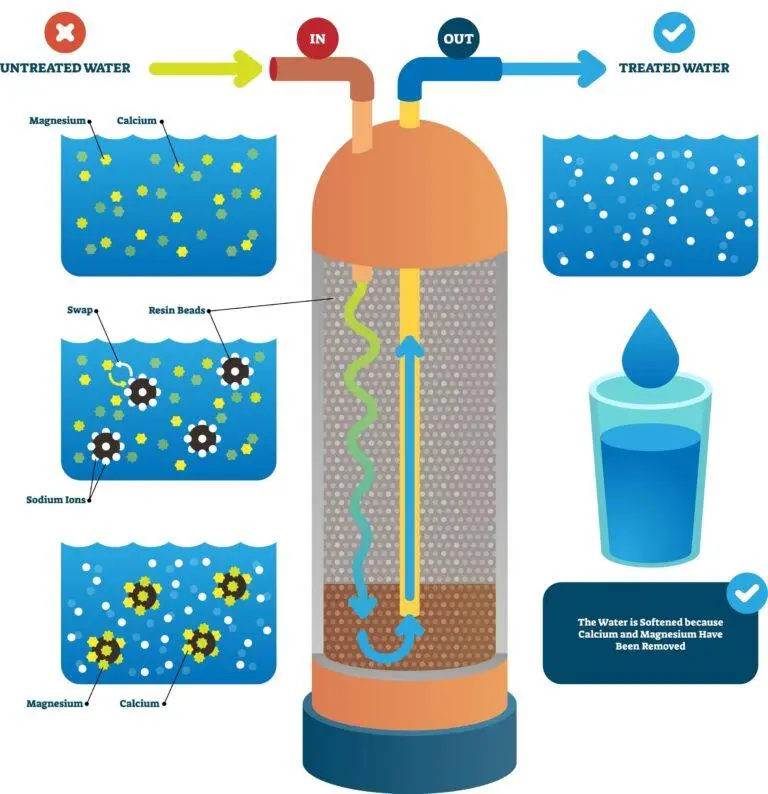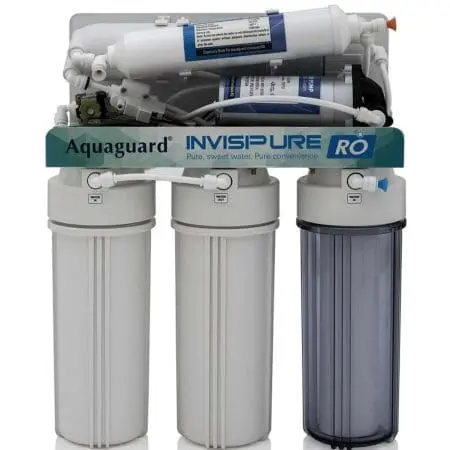WATER FILTER AND SOFTENER SYSTEM IN PUNE
WATER FILTER AND SOFTENER SYSTEM
Modern water filter and softener systems in Pune for both residential and commercial use are our area of expertise at Larco India Pvt. Ltd. in Pune. We provide a number of alternatives, including whole-house water filter and softener systems that integrate water filtration and softening into one unit. Our solutions enable clean, purified water to be made available throughout your residence or place of business. Also, We are a Top Manufacturers and supplier of Water Filter And water softener systems in Pune


What are water filter and softener systems?
water filter:
A water filter is a tool or system that purifies water by removing particles, pollutants, and other impurities, enhancing its flavour, aroma, and general quality. It functions by physically or chemically entangling and eliminating different contaminants that might be present in the water. Water filters are frequently employed to guarantee that the water you drink is secure and hygienic.
water softener systems
The problem of water hardness is especially addressed by a water softener. Mineral content in the water—mostly calcium and magnesium—is referred to as water hardness. In pipes, appliances, and fixtures, these minerals may cause scale buildup. Ion exchange, a procedure used by water softeners, removes calcium and magnesium ions from the water and replaces them with sodium or potassium ions. This procedure decreases the water’s hardness and keeps scale from forming.

How do water filters and Softener systems Work?
How do water filters work?
Water filters function by using a variety of processes to remove pollutants and impurities from the water. The kind of water filter being utilized determines the exact technique. Here are some descriptions of popular types::
Types of water filters
Activated Carbon Filters:
Porous carbon material that has been processed to provide a large surface area with few pores is what makes up activated carbon filters. As water flows through the carbon, contaminants are adsorbed onto its surface. Chlorine, VOCs, certain chemicals, and offensive odors can all be eliminated with this method.Reverse Osmosis Filters:
Reverse osmosis employs a semipermeable membrane that permits water molecules to flow through while obstructing bigger pollutants, minerals, and ions. Water is forced through the membrane by applying pressure, which successfully separates pure water from contaminants. Numerous pollutants, including salts, minerals, heavy metals, and microbes, can be eliminated with this procedure.UV (Ultraviolet) Filters:
UV filters use ultraviolet radiation to harm bacteria, viruses, and other microbes’ DNA, stopping them from reproducing and making them inert. By doing this, the water is properly sterilized and made safe to drink.Sediment Filters:
Sand, silt, rust, and debris are some of the bigger particles that sediment filters catch. Particles in the water are caught in the filter media as it travels through the filter.Ion Exchange Filters:
In order for ion exchange filters to function, undesired ions like calcium and magnesium must be exchanged for more desirable ions, typically sodium or potassium. Water is softened as a result of ions being drawn to and exchanged between resin beads in the filter.
How Water Softener Systems Work:
The main problem that water softeners attempt to solve is the calcium and magnesium ion-induced hardness of the water. Ion exchange water softeners are the most widely used kind:
Ion Exchange Water Softeners:
In these systems, resin beads coated with sodium or potassium ions are placed in a resin tank. The resin beads are drawn to the calcium and magnesium ions in the hard water as it passes through the resin tank. By exchanging the calcium and magnesium ions in the water for sodium or potassium ions, the resin beads effectively soften the water by lowering its hardness. Eventually, calcium and magnesium ions overwhelm the resin, which then requires regeneration.
A strong solution of sodium chloride (salt) is used to flush the resin beads during the regeneration process. This removes the calcium and magnesium ions that have built up in the resin, which are then flushed out of the system, making the resin ready to soften water once more.


What Does a Water Softener Do?
LARCO India utilizes a water softening process that effectively removes Calcium ions (Ca2+) and Magnesium ions (Mg+) from the water, preventing scale formation and soap interference. This is achieved through ion exchange and precipitation techniques. Our water softening equipment consists of a mineral tank and a brine tank. The hard water passes through the resin bed in the mineral tank, transforming it into soft water. Experience the benefits of water filter and softener systems with LARCO India’s efficient water softener system.
Advantages of Water filter and softener systems
Water filter and water softener systems offer several advantages for improving the quality of the water you use in your home. The main advantages of each system are as follows:
Water Filter System:
- Removal of Contaminants: In order to ensure safer and cleaner drinking water, water filtration systems efficiently remove a variety of contaminants, including chlorine, silt, bacteria, viruses, heavy metals (including lead and mercury), and volatile organic compounds (VOCs).
- Improved Taste and Odor: By removing chemicals and other contaminants that may impact the flavor of your water, filtration can considerably enhance its taste and odor.
- Healthier Drinking Water:Water filters can give you and your family access to cleaner drinking water, lowering your chance of contracting diseases transmitted through the water and other health problems brought on by water toxins.
- Convenience: It is more practical and economical to have filtered water available at all times from your faucet or through a special dispenser than to constantly purchase bottled water.
- Environmental Impact: Utilizing a water filtration system lessens the demand for single-use plastic water bottles, which decreases plastic waste and has a minimal negative impact on the environment.
- Cooking and Food Preparation: By improving the flavor and quality of food and beverages, filtered water can make cooking and food preparation easier.
- Reduced Chlorine Exposure: Although chlorine is frequently used to sanitize tap water, it can be bad for your skin and hair. When taking showers and baths, a water filter helps lessen chlorine exposure.
Water Softener Systems:
- Scale Prevention: Water softeners take out minerals like calcium and magnesium to lessen the hardness of the water. By preventing the formation of limescale in pipes, appliances, and fixtures, their lifespan and efficiency can be increased.
- Appliance Protection: Softened water helps with the prevention of mineral accumulation in water-using appliances (such as water heaters, washers, and dishwashers), which increases efficiency and lengthens equipment life.
- Soap and Detergent Efficiency: Softened water makes soaps and detergents lather better, resulting in less soap being used, better cleaning outcomes, and possibly lower costs.
- Smooth Skin and Shiny Hair: Due to the lack of residue that softened water can leave behind, it can result in softer skin and smoother hair.
- Energy Efficiency: Because softened water requires less energy to operate than hard water, appliances, and water heaters use less energy to remove mineral buildup.
- Reduced Water Spots: Softened water results in cleaner and shinier surfaces by minimising the development of water stains on dishes, glasses, and fixtures.
- Clothing Care: By lessening the abrasive impacts of mineral deposits during washing, softened water can increase the lifespan of textiles.
It’s necessary to keep in mind that the particular advantages you get will rely on your water supply and the caliber of the water in your location. Additionally, some systems provide full water treatment solutions by combining the powers of water filtration and water softening. It’s wise to test your water and seek professional advice when deciding between a water filter or a water softener system to find out which one best meets your needs.
